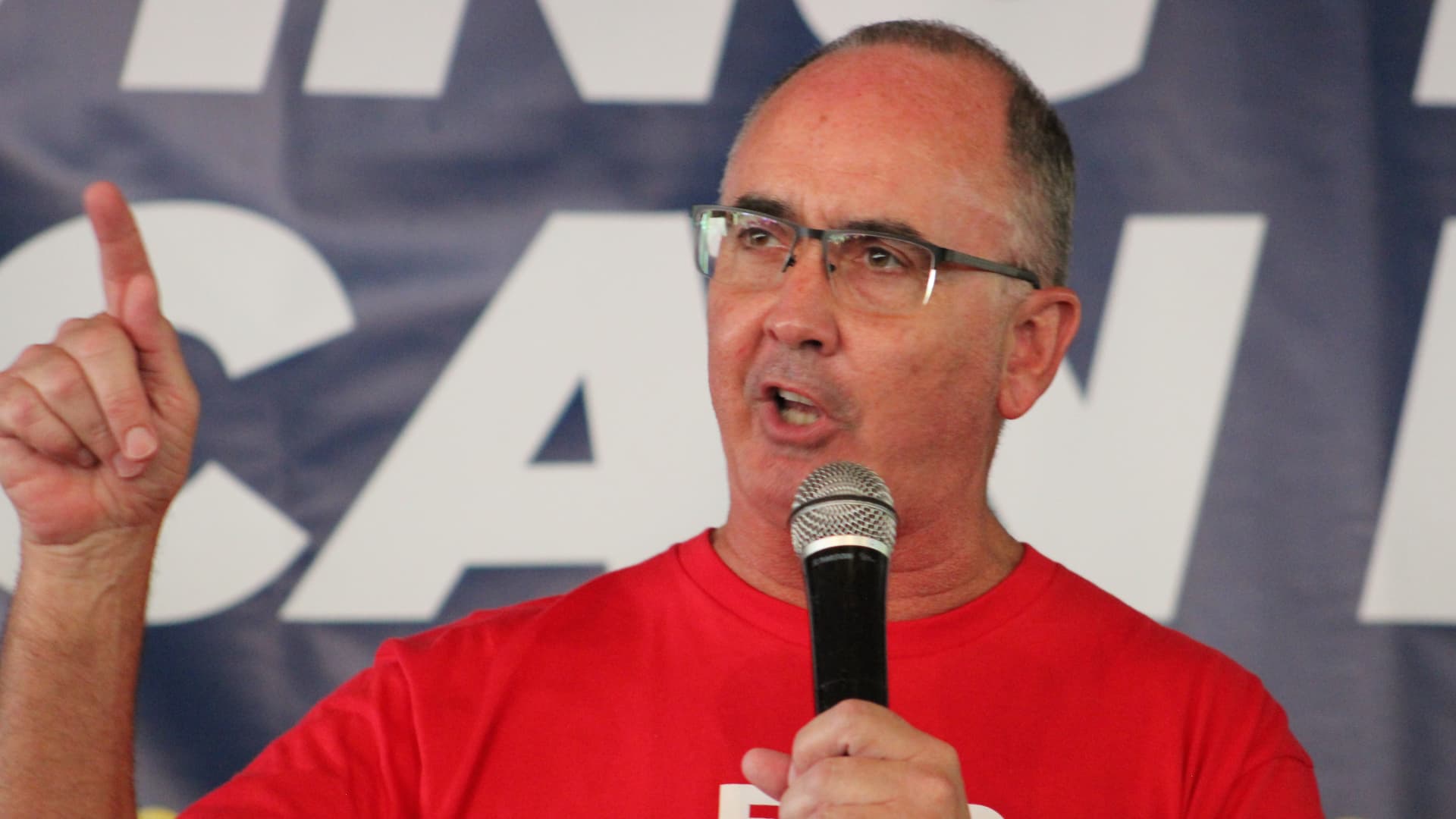DETROIT – The United Auto Workers and Detroit automakers remain far apart ahead of the union “likely” strategically striking the companies after an 11:59 p.m. ET Thursday deadline, UAW President Shawn Fain said Wednesday night.
The outspoken union leader laid out significant details of current proposals between the UAW and General Motors, Ford Motor and Stellantis regarding ware increase, cost-of-living adjustments, bonuses, job security and other new demands from the companies.
Fain also laid out general plans about how the union expects to strategically strike the Detroit automakers, if needed. He said the strike will start at a limited number of locations, followed by others if needed.
“If the companies continue to bargain in bad faith … then our strikes are going to continue to grow … We’re going to hit where we need to hit,” Fain said Wednesday during a Facebook Live event.
Fain also said, “an all-out strike is still a possibility.” He also said if there are strikes, the union will not negotiate Friday, instead they will hold a 4 p.m. rally with U.S. Sen. Bernie Sanders, the progressive lawmaker from Vermont, in Detroit.
Key demands from the union have included 40% hourly pay increases, a reduced 32-hour work week, a shift back to traditional pensions, the elimination of compensation tiers and a restoration of cost-of-living adjustments, among other items on the table.
The companies did not immediately respond for comment on Fain’s remarks.
Here’s where things stand on key issues, according to Fain.
Wages
Fain said Ford has offered a 20% increase over the four years of the deal, followed by GM at 18% and Stellantis at 17.5%
Tiers
Ending tiers, or in-progression pay, where members are paid differently based on seniority, has been a top priority of the union for years.
Fain said each of the automakers has proposed cutting an eight-year grow-in period to top wages that are currently at more than $32 an hour to four years.
COLA
Fain has demanded a return to cost of living adjustments, or COLA, which increase wages to keep pace with inflation.
Fain said all companies have made “deficient COLA” proposals that either include lump sum payments, limit the amounts, or only kick in at certain levels that the union finds inadequate.
Ford has proposed a return to a COLA formula used in the past, which Fain said would provide estimated wage protection of less than $1 over the term of the contract; proposals from GM and Stellantis would provide no protection, he said.
Profit-sharing
The UAW wanted to enhance profit-sharing payments to provide workers $2 for every $1 million a company spends on share buybacks, special dividends and increases to normal dividends.
Fain said the Detroit automakers have each offered “concessionary profit-sharing” formulas that lower the current standards, which are based on a company’s North American profits.
The union said Ford’s formula would have resulted in 21% smaller checks over the last two years; GM’s would have resulted in 28% smaller checks over the last year; and Stellantis would like to base payments on “an unknown internal company attendance calculation.”
Profit-sharing was implemented in recent years as a way for the companies to “reward” members in good times but not have to pay as hefty of bonuses when the companies were not doing well.
Temps
Ending the use of temporary workers, who can be paid lower wages and have no job security, is another longstanding UAW priority. Fain said that Ford has agreed to convert all current temporary workers with 90 days of continuous service to full-time workers, with full benefits, in the tiered progression.
Fain said that GM has offered “inadequate” benefits and “meager” wage increases for temps and that Stellantis’ proposal provides no path at all to full-time status.
Job security
The UAW has proposed what it calls a “Working Families Protection Program,” under which employees at a shuttered factory would be paid by the automakers to do local community-service work. All three automakers rejected the proposal, Fain said. Stellantis went further, proposing a unilateral right to close and sell 18 facilities, including factories and parts depots, he said.
This is a developing story. Check back for updates.

